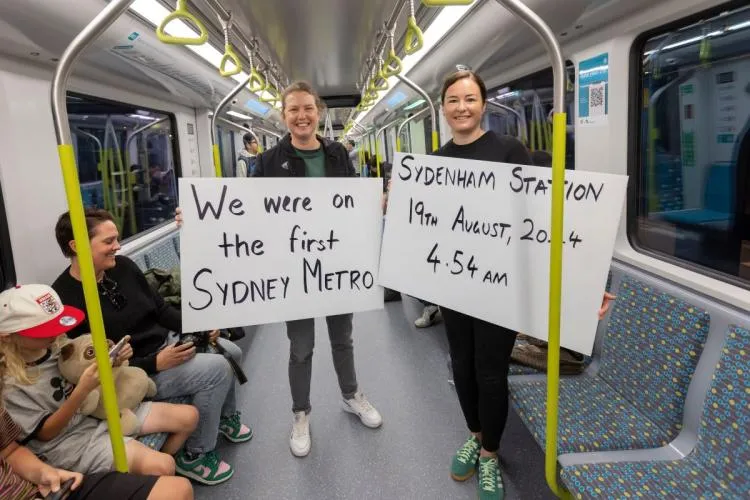Engineering and consulting firm Arup has unveiled its vision of the future of rail travel in the light of trends such as urban population growth, climate change and emerging technologies.
The Future of Rail 2050 foresees predictive maintenance of rail lines by robot drones; driverless trains travelling safely at high speed, freight delivered automatically to its destination, and smart technology designed to improve passenger experience and enable ticketless travel.
According to Colin Stewart, Global
July 2, 2014
Read time: 2 mins
Engineering and consulting firm Arup has unveiled its vision of the future of rail travel in the light of trends such as urban population growth, climate change and emerging technologies.
The Future of Rail 2050 foresees predictive maintenance of rail lines by robot drones; driverless trains travelling safely at high speed, freight delivered automatically to its destination, and smart technology designed to improve passenger experience and enable ticketless travel.
According to Colin Stewart, Global Rail leader at Arup, "The global urban population is growing rapidly and by 2050, around 75 per cent of the world's population will live in cities. This places huge pressure on transport infrastructure and resources, but also creates a significant opportunity for rail. The challenge will lie in juggling the responsibility of providing reliable travel for millions while simultaneously tailoring each journey for the individual. However, by rapidly developing technology and taking bold steps to overcome capacity and cost challenges, the rail renaissance can deliver a future where it is the backbone of our travel system."
Arup used developments from current rail projects it has led on around the world, as well as insight from the Arup Foresight + Research + Innovation team and global contributors, to inform the futuristic predictions outlined in the report.
With the increasing frequency of extreme weather events, the report looks at future construction and maintenance techniques, predicting intelligent robots building new, and retrofitting old rail infrastructure. Improvements in - and the widespread distribution of - driverless systems and trains, will further optimise the running times and could eradicate journey delays.
The report also considers how freight transport will take place high above (via elevated platforms), far below (in tunnels deep underground), or even through a new generation of airships.
Technological advancements are also at the epicentre of improving the passenger experience as the convergence of mobile devices, wearable and location-aware technology provide accurate, real-time travel information, and high-performance networks grant uninterrupted access to work and entertainment systems on the move.
The Future of Rail 2050 foresees predictive maintenance of rail lines by robot drones; driverless trains travelling safely at high speed, freight delivered automatically to its destination, and smart technology designed to improve passenger experience and enable ticketless travel.
According to Colin Stewart, Global Rail leader at Arup, "The global urban population is growing rapidly and by 2050, around 75 per cent of the world's population will live in cities. This places huge pressure on transport infrastructure and resources, but also creates a significant opportunity for rail. The challenge will lie in juggling the responsibility of providing reliable travel for millions while simultaneously tailoring each journey for the individual. However, by rapidly developing technology and taking bold steps to overcome capacity and cost challenges, the rail renaissance can deliver a future where it is the backbone of our travel system."
Arup used developments from current rail projects it has led on around the world, as well as insight from the Arup Foresight + Research + Innovation team and global contributors, to inform the futuristic predictions outlined in the report.
With the increasing frequency of extreme weather events, the report looks at future construction and maintenance techniques, predicting intelligent robots building new, and retrofitting old rail infrastructure. Improvements in - and the widespread distribution of - driverless systems and trains, will further optimise the running times and could eradicate journey delays.
The report also considers how freight transport will take place high above (via elevated platforms), far below (in tunnels deep underground), or even through a new generation of airships.
Technological advancements are also at the epicentre of improving the passenger experience as the convergence of mobile devices, wearable and location-aware technology provide accurate, real-time travel information, and high-performance networks grant uninterrupted access to work and entertainment systems on the move.









